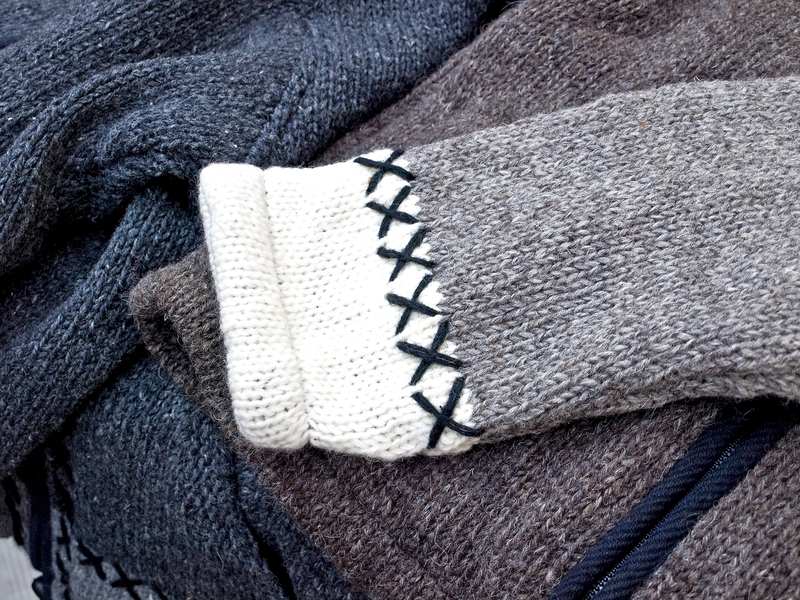The Best Facilities for Pots and Pans Recycling Near You
Are your old pots and pans cluttering up your kitchen cabinets? Wondering how to dispose of them responsibly? Pots and pans recycling is not only a great way to declutter but also an eco-friendly choice that contributes to a sustainable future. In this comprehensive guide, we'll explore the top facilities for recycling pots and pans, key tips, benefits, and everything you need to know to make the right choice for both you and the environment.
Why Recycle Pots and Pans?
Most cookware, including pots, pans, and even lids, are made from metals such as aluminum, stainless steel, or copper. These valuable materials can be reused repeatedly without losing their integrity. Recycling old cookware helps reduce landfill waste, conserves resources, and saves energy compared to manufacturing new metals.
- Environmental Impact: Metal extraction and processing are resource-intensive and polluting. Recycling reduces demand for new raw materials.
- Declutter Your Home: Make space in your kitchen and avoid hoarding unwanted cookware.
- Economic Benefits: Metal recycling supports local businesses and creates jobs in your community.
- Supports Sustainability: Recycling is an essential component of a circular economy and sustainable living.

Common Materials in Pots and Pans That Can Be Recycled
- Aluminum
- Stainless Steel
- Copper
- Cast Iron
Cookware can have plastic, wooden, enamel, or non-stick coatings. These may require you to check with recycling centers about acceptable items.
How to Prepare Pots and Pans for Recycling
- Clean Thoroughly: Wash your pots and pans to remove food scraps and grease. Most facilities require items to be clean for processing.
- Remove Non-Metal Parts: Take off plastic handles, glass lids, or wooden pieces. If not possible, check with the recycling center about their requirements.
- Sort According to Metal Type: If you have many items, sort them by material. This step may make it easier at the recycling facility.
- Don't Mix In Other Materials: Avoid combining with electronics, ceramics, or other unrelated waste.
Top Places for Pots and Pans Recycling Near You
Now, let's dive into the main topic: the best facilities for pots and pans recycling near you. While options can vary depending on your location, here's an overview of reliable choices you'll likely find in most areas.
1. Municipal Recycling Centers
- Curbside Pickup: Some city recycling programs accept metal cookware with curbside collection. Review your municipality's website for accepted materials and guidelines.
- Local Drop-Off Sites: Many towns and cities operate recycling drop-off centers where you can bring old pots and pans.
- Metal-Specific Events: Communities often host scrap metal collection events--check local calendars for upcoming dates.
Tip: Contact your local public works or sanitation department online to confirm what is accepted and if your pots, pans, and lids need any preparation.
2. Scrap Metal Yards
- Instant Drop-Off: Scrap metal recycling facilities accept most types of cookware made of metal, regardless of condition.
- Payments: Some scrap yards pay per pound for metal items, which is a bonus for responsible recycling.
- Wide Acceptance: Cast iron, copper, aluminum, and stainless steel are all welcomed. Non-stick or coated pans may require extra steps, so always ask first.
*Note:* Some non-stick coatings, like Teflon, can complicate the recycling process. Check with the facility about their policies on coated cookware.
3. Appliance and Household Goods Recycling Programs
- Retailer Partnerships: Some large hardware stores and home goods retailers have partnerships with recycling services or host special recycling days for household items, including cookware.
- Donation Options: If your pots and pans are in good condition, these programs often provide upcycling and donation opportunities.
4. Private Recycling Companies
- Convenient Pickups: Some specialized recycling companies offer home pickup services for large or heavy loads of household metals.
- Comprehensive Recycling: These companies may handle non-metal parts, making it simpler for you to responsibly dispose of unwanted pots and pans.
5. Charities and Nonprofits
- Thrift Stores: If your cookware is still serviceable, donate to local thrift stores like Goodwill, Salvation Army, or Habitat for Humanity ReStores.
- Community Organizations: Women's shelters, soup kitchens, and community centers may need kitchen tools and accept gently used donations.
While this isn't true "recycling," it's a form of reuse that extends your cookware's life!
How to Find Cookware Recycling Facilities in Your Area
Finding local pots and pans recycling options near you has never been easier. Here are surefire ways to track down the closest and most reliable facilities:
- Search Online - Use keywords like "pot and pan recycling near me", "scrap metal recycling in [your city]", or "where to recycle cookware [your location]" to find local businesses and municipal facilities.
- Earth911 - This website allows you to enter your ZIP code and see a list of recycling drop-off centers in your area that accept pots and pans.
- Call Your City Hall - Municipal offices or public works teams usually have a database and recycling info on hand.
- Use Recycling Apps - Apps such as iRecycle or Recycle Coach provide facility directories based on GPS or address.
- Check Retailer Programs - Ask at your local big box stores if they host recycling events or have permanent drop-off bins.
What Happens to Pots and Pans After They're Recycled?
Once your cookware is received at a recycling facility, it goes through several processes:
- Sorting - Items are sorted by metal type and checked for contaminants like non-metal handles.
- Shredding and Melting - The metal is shredded and melted down in a furnace, separating valuable metals for reuse.
- Purification and Formation - The pure metal is formed into ingots or sheets, ready to be manufactured into new products.
This closed-loop system minimizes waste and provides sustainable materials for future products, from new pans to car parts and building materials.
Cookware Recycling: FAQs
Can I recycle non-stick or Teflon-coated pans?
It depends. Some recycling centers do not accept Teflon or other non-stick coated cookware due to chemical contamination. Remove the coating if possible, or check with the facility first. When in doubt, seek scrap metal yards that specify they accept coated items.
Are ceramic and glass cookware recyclable?
Typically, ceramic and glass pans are not recyclable with metals and may need to be taken to specialty facilities or disposed of in the trash, unless donation or upcycling options exist.
What about rusty or damaged pots and pans?
Yes! Scrap metal yards will generally take rusted or damaged cookware as long as it's metal. Clean them beforehand and remove any non-metal pieces.
Can I just toss my pots and pans in the curbside recycling?
*Probably not.* Most curbside recycling services don't accept large metal items with regular collection. Always check your local guidelines before placing pots and pans in the recycling bin.
Creative Ways to Repurpose Unwanted Pots and Pans
Sometimes, recycling isn't the only or best option! Here are some unique ways to give your old cookware new life:
- Planters: Turn pots and pans into quirky planters for your garden or windowsill.
- Art Projects: Use lids and pans as canvas for painting or wall decor.
- Storage Solutions: Hang old pans on a wall for rustic kitchen organization or tool storage.
- Musical Instruments: With a little imagination, make drums or chimes out of old cookware.
*Note:* Repurposing is a fun and creative form of upcycling--another way to keep items out of landfills!

Key Takeaways: Responsible Pots and Pans Disposal
- Check material type and clean thoroughly before recycling.
- Locate local recycling drop-offs, scrap metal yards, or retail recycling events.
- Consider donation or upcycling if items are still useful.
- Remove non-metal parts for proper processing.
- Always call ahead or check online for facility requirements.
Conclusion: Make Your Cookware Count
Responsible pots and pans recycling is a valuable and often overlooked way to support environmental health and your local community. With a little research, you can find the best cookware recycling centers near you, reduce your carbon footprint, and feel good about clearing out that kitchen clutter. Whether you choose to drop your pots and pans at a local scrap metal yard, participate in a municipal recycling drive, or donate to someone in need, you'll be making a positive difference for the planet.
Ready to recycle your old pots and pans? Start today and help build a cleaner, greener future--one pan at a time!
- How to clean and prep cookware for recycling
- Where to recycle pots and pans locally
- What happens to recycled cookware?
- Upcycling pots and pans
Have more questions about kitchenware recycling or want to share your experience? Leave a comment below or connect with your local recycling center for personalized guidance!